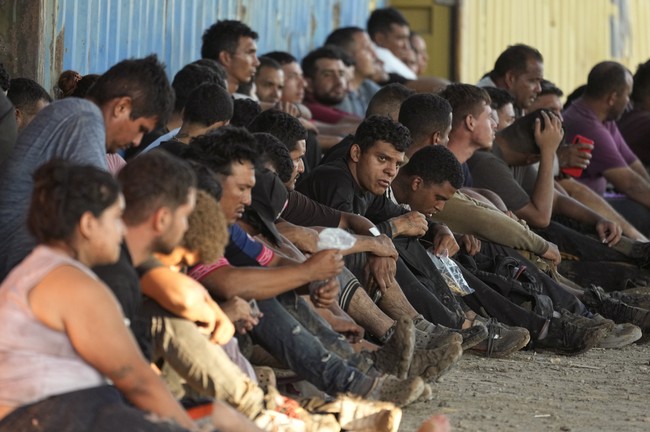Tensions Erupt Over Hostage Release Deadlines
As hostilities in Gaza hang by a thread, international leaders grapple with the thorny issue of hostage negotiations amid threats to abandon the fragile ceasefire.
Published February 12, 2025 - 00:02am

Image recovered from bostonglobe.com
In a burgeoning crisis that threatens to undermine the tenuous truce in the Gaza Strip, Israeli Prime Minister Benjamin Netanyahu has markedly upped the ante, ordering military reinforcements around the volatile region. According to an anonymous Israeli official, Netanyahu has instructed his security apparatus to brace for potential conflict if Hamas fails to release all hostages by this Saturday—a scenario that could reignite fighting in the strife-torn region just three weeks into a shaky ceasefire.
The delicate peace was established in exchange for the gradual release of hostages and prisoners held by both sides. Recent weeks have seen a staggered exchange with Hamas releasing 21 hostages while Israel reciprocated by freeing hundreds of Palestinian detainees. However, with approximately 70 hostages still allegedly in Hamas' custody, tensions remain high, driven in part by controversial statements from Donald Trump, the former U.S. President.
On Tuesday, President Trump vehemently advocated for the cessation of the ceasefire if the remaining hostages aren't released by the upcoming weekend. His audacious assertion that should hostages not return by noon on Saturday, the ceasefire would become null and void, pushing the region towards chaos, has been met with severe criticism from international observers and conflicting parties alike.
Hamas, the governing authority in Gaza, has accused Israel of violating the terms by which the ceasefire was agreed upon. It claims that Israel, among other transgressions, has delayed the return of residents to North Gaza, a significant condition of their ceasefire understanding. As a retort, Hamas has declared its suspension of planned hostage releases until further notice, further straining an already fragile situation.
The international community, including mediating parties such as Egypt, have expressed alarm over the potential breakdown of negotiations. Egyptian officials have reportedly raised concerns over the sustainability of the agreement, fearing that escalating hostilities could jeopardize regional stability. Within Israel, the public continues to exhibit mounting impatience, as demonstrations have surged demanding government accountability over the stalled peace process.
Importantly, significant pressures internally dominate Israeli politics. Reports from Tel Aviv indicate growing domestic dissatisfaction, escalating into street protests that urge Netanyahu's government to uphold its bargaining terms. Emotional appeals have been vociferously made by the families of hostages, placing intense public pressure on Israeli leaders.
The backdrop of this geopolitical tension is significantly shaped by U.S. diplomatic interventions in the conflict. Trump's earlier comments—remarkably suggesting a strategic possibility of the U.S. controlling Gaza as a prospective real estate project—have introduced further complexity to the ceasefire discussions. Officials on all sides of the negotiation table are concerned that such rhetoric might incentivize parties like Hamas to reconsider their strategic priorities.
Meanwhile, Netanyahu continues to convene with key advisors attempting to discern a path forward. Questions linger on whether the deadlock in negotiations is due to practical logistical challenges or the deeper resistance rooted in broader geopolitical realignments prompted by Trump's remarks.
Both Israel and Hamas, locked in a historic conflict replete with cycles of violence and fragile peace, face the risk of spiraling back into a full-scale confrontation unless diplomatic efforts resolve the looming impasse.
The top-level diplomatic drama underscores the complexity and volatility inherent within Middle-East geopolitics. As the Saturday deadline nears, and with world leaders wielding influence both publicly and behind closed doors, the fate of the ceasefire and its implications for regional stability remain precariously undetermined.






